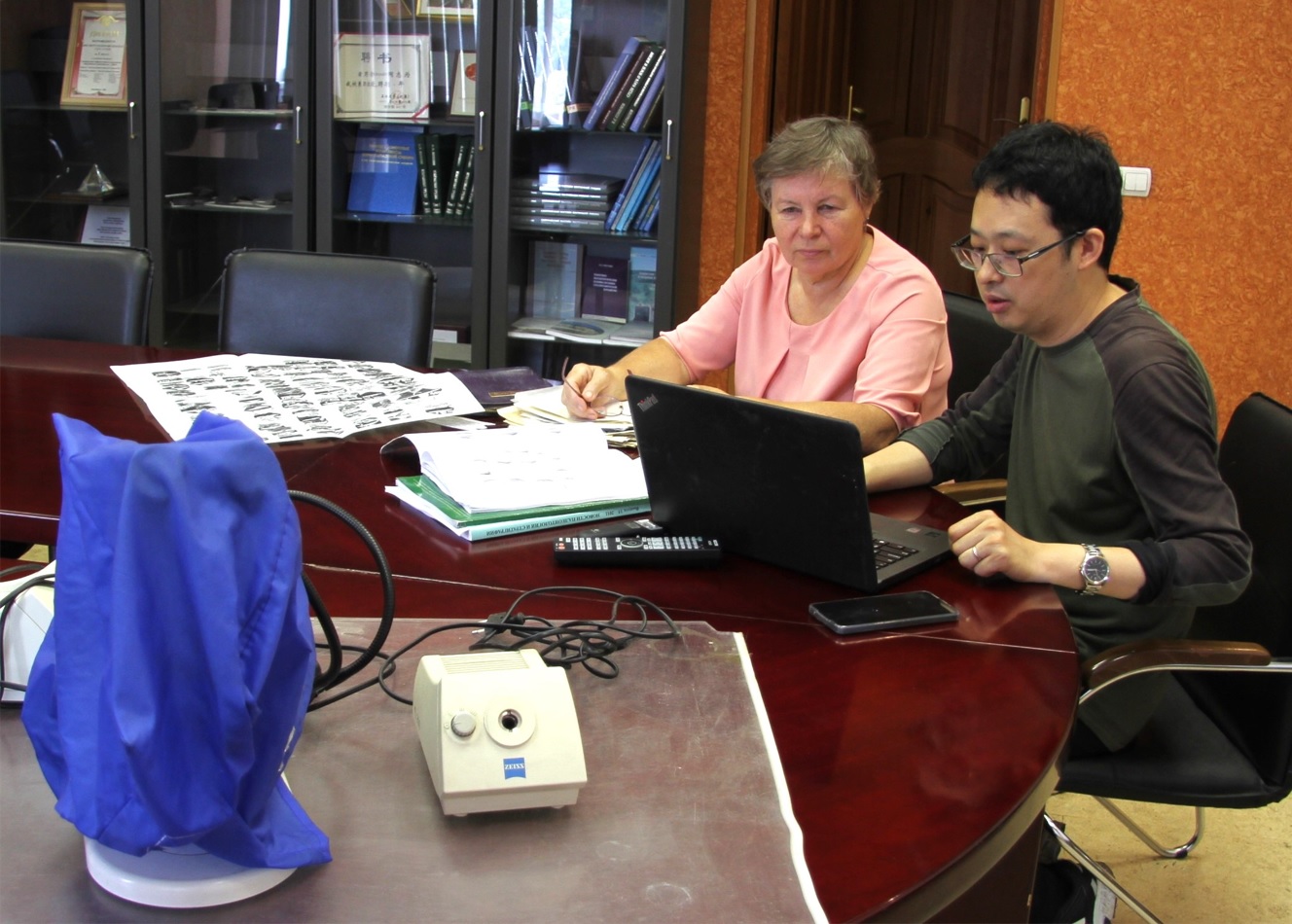Within the general framework for cooperation under the scientific research agreement between the Trofimuk Institute of Petroleum Geology and Geophysics, Siberian Branch of the Russian Academy of Sciences (Russia), and the Nanjing Institute of Geology and Paleontology (PRC), Professor Liu Jianfeng, Dr Sci, arrived in Novosibirsk. During his business trip, Professor Liu Jianfeng will get familiarized with the paleontological collections at IPGG SB RAS and show his Russian colleagues the photographs of fossils from Devonian sections in southern China.
Both the institutes are committed to building long-lasting partnership and their first joint research has already been launched. The scientists focus on conodonts (a class of extinct chordates resembling eels).

N.G. Izoh and Liu Jianfeng at work
Professor Lu Jianfeng is particularly interested in the collections of conodonts collected by IPGG researchers in the Kitab State Geological Reserve (Uzbekistan). This area boasts of many natural monuments dated to the Silurian (444-419 million years ago) and Devonian (419-358 million years ago) and are characterized by abundant fauna species. Specifically, the unique Zinzilban section contains the basal Emsian Stage global stratotype (GSSP) which was approved in 1996 by the International Union of Geological Sciences.
According to Nadezhda Izokh, PhD (geol-mineral.), senior researcher at the Laboratory of Paleozoic Paleontology and Stratigraphy of IPGG SB RAS, there are sections displaying strikingly similar variety of conodonts in southern China. This allows suggesting that hundreds of millions of years ago the areas of China and Uzbekistan represented a single marine basin, with the same group of microfauna existed and evolved there, which explains abundance of similar species of conodonts identified in China and Uzbekistan.
Liu Jianfeng and Nadezhda Izoh will be examining collections of and from the Salair sections to compare them with the Chinese finds. Scientists will study biodiversity of conodonts and evolutionary lineage of this group.
As part of further cooperation between the two institutes, which implies exchange of specialists, business trips of IPGG researchers to Nanjing and joint publications will be planned.
Published by IPGG Press Service